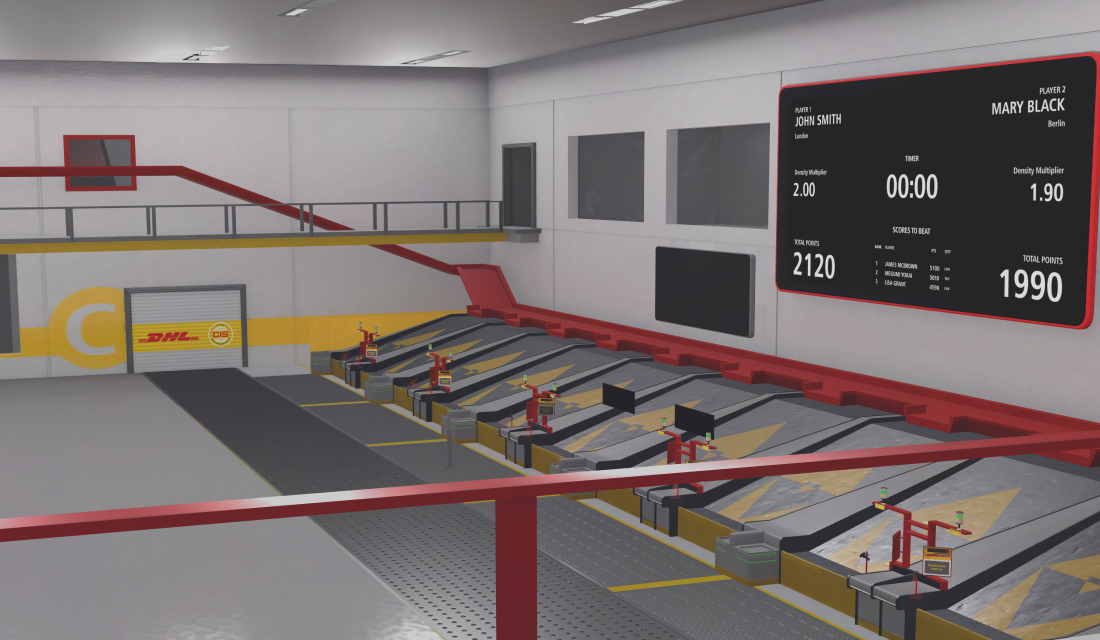
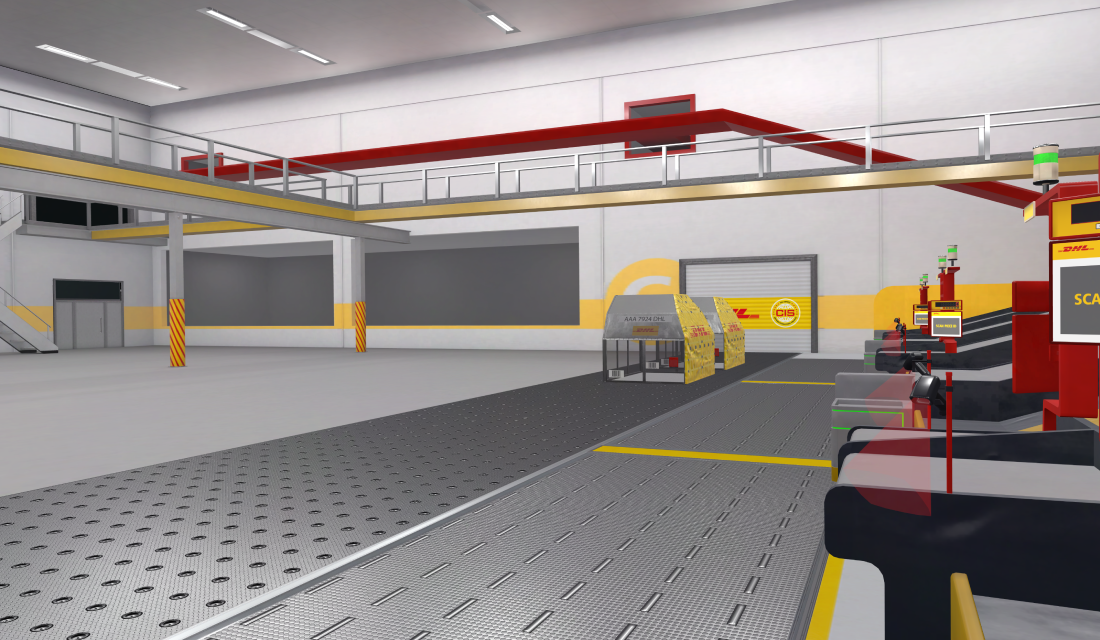
Operational optimization
Use VR training to fine-tune warehouse processes, transportation planning, and inventory management, leading to improved productivity and reduced downtime.
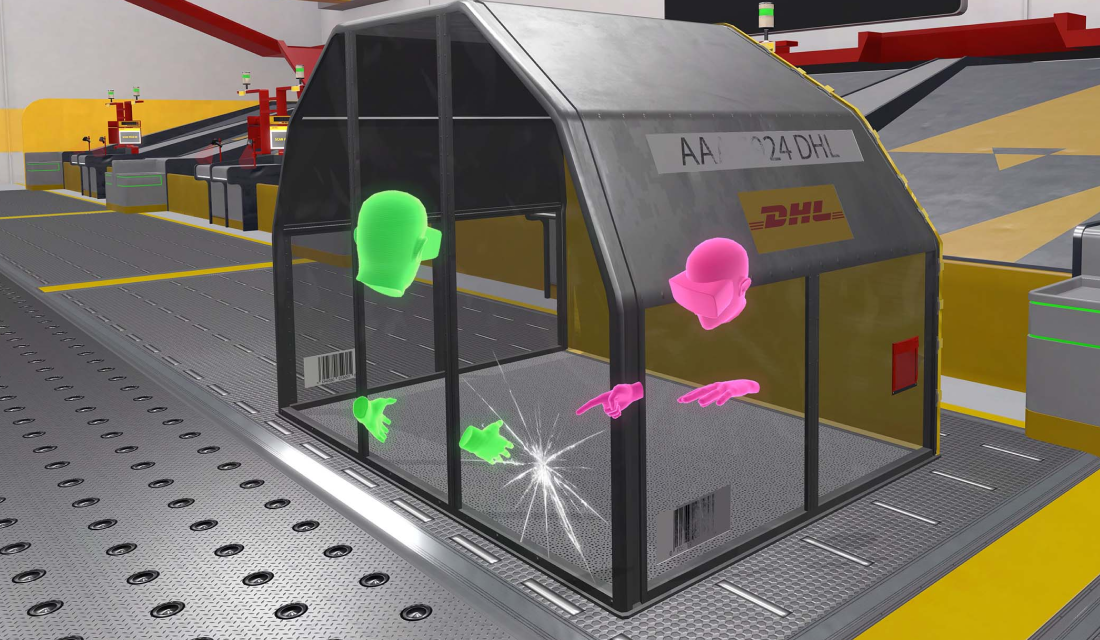
Safety and compliance
Strengthen safety protocols and ensure compliance with regulations through immersive VR training, reducing accidents and building a culture of safety.
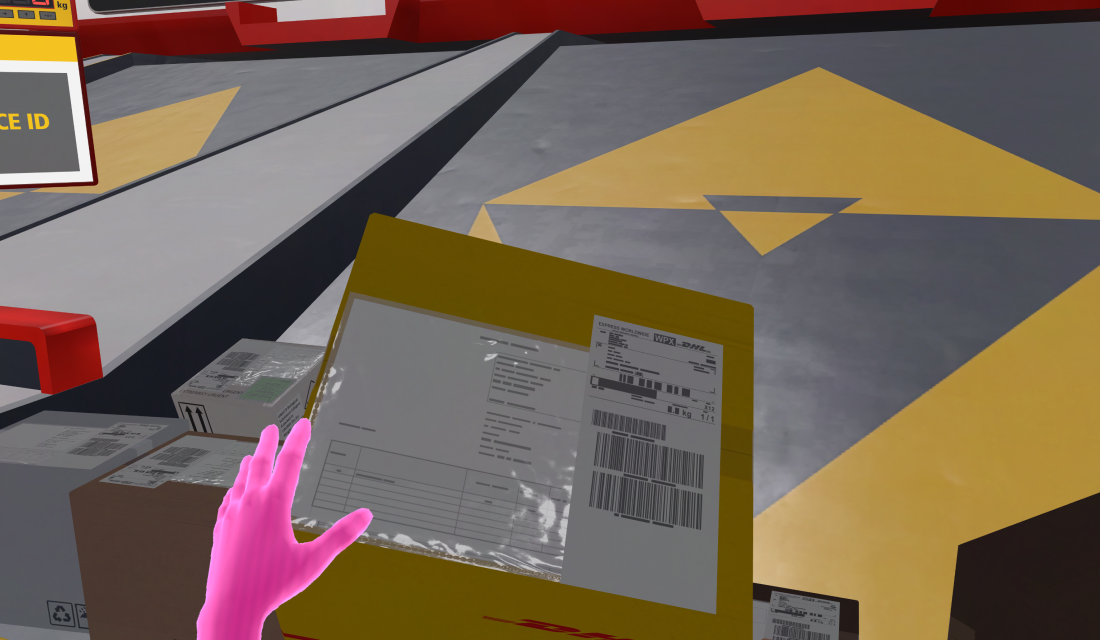
Skills development
Develop technical skills and enhance logistics expertise through VR training, enabling workers to master new tasks and improve their efficiency.
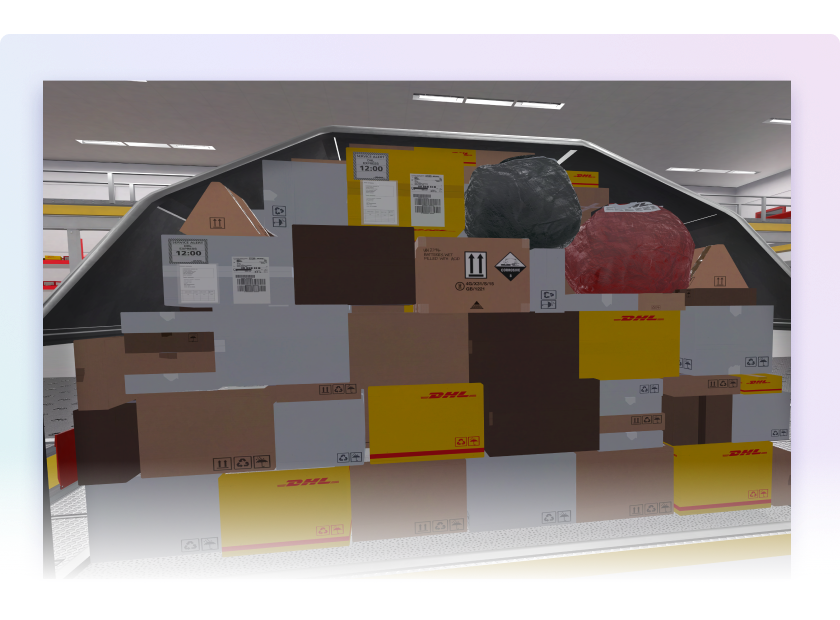
Operational optimization
The logistics industry leverages VR to enhance warehouse operations, optimize transportation processes, and improve inventory management, leading to reduced errors and increased productivity. Warehouse workflow training immerses employees in a virtual setting, allowing them to practice tasks like picking, packing, and sorting without real-world risks, which minimizes downtime and enhances precision.
Transportation planning with VR lets logistics personnel optimize routes and navigate complex networks, resulting in shorter delivery times and lower costs. VR-based equipment handling training provides hands-on experience with virtual machinery, such as forklifts, improving proficiency and reducing accidents.
Additionally, VR-based inventory management scenarios help employees understand and practice inventory tracking, reducing stock discrepancies and improving overall warehouse efficiency.
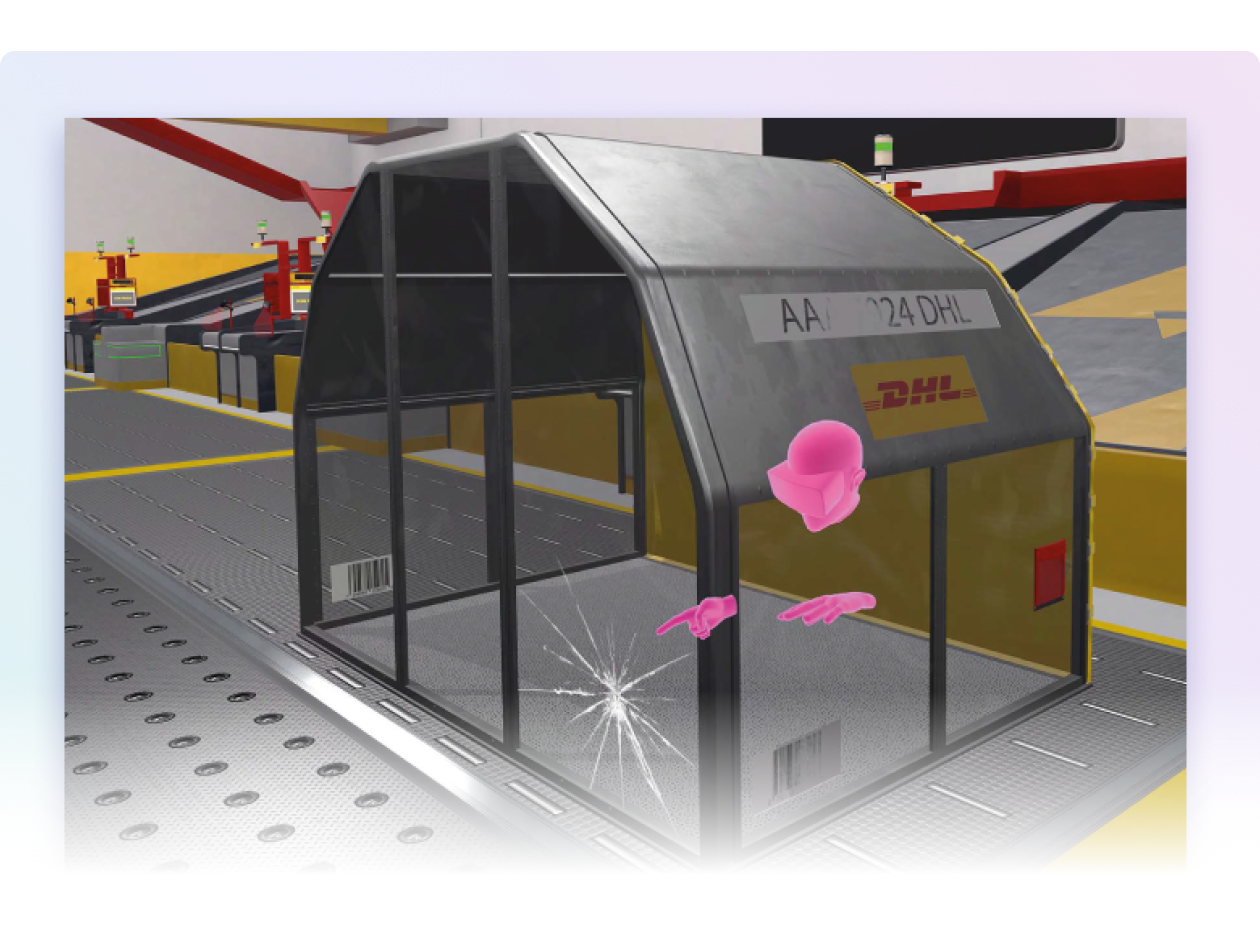
Safety and compliance
VR technology in the logistics industry is used to promote workplace safety and ensure compliance with regulations, reducing the risk of incidents and fostering a safety-oriented culture. Safety protocol training in VR reinforces critical safety measures, ensuring that best practices are consistently applied across the workforce.
Hazard awareness sessions immerse workers in virtual environments, enabling them to identify and respond to potential hazards without facing real-world dangers. VR emergency drills simulate various scenarios, such as fires or equipment malfunctions, allowing employees to practice effective responses and enhance emergency preparedness. Additionally, VR-based Lock Out/Tag Out training ensures proper procedures are followed, reducing the risk of accidents due to improper equipment handling.
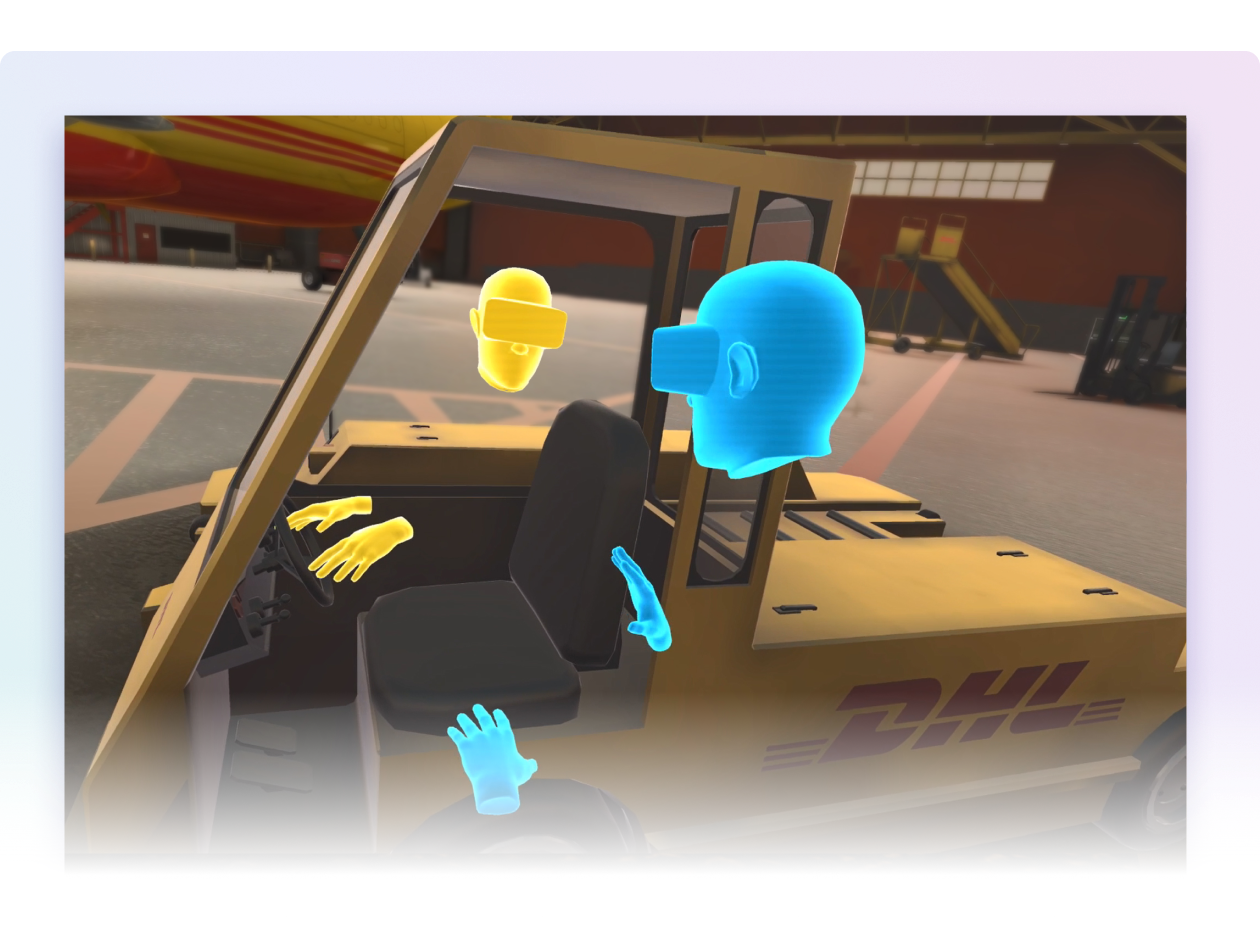
Skills development
The logistics industry employs VR to advance technical skills and improve employee proficiency, enabling workers to master new tasks and refine their expertise. Equipment handling mastery training offers immersive experiences with virtual replicas of warehouse machinery, allowing workers to build confidence and skill in a safe environment.
VR-based loading and unloading techniques focus on improving efficiency and reducing product damage, helping employees learn best practices without risk. Supply chain visualization in VR provides a broader perspective on logistics operations, assisting workers in understanding the complexities of the supply chain and making more informed decisions.
New to VR training?
Tap into the expertise of the world´s biggest companies and learn
the 5 considerations to get it right from the start.

Explore the Immerse solutions

Platform
An easy way to manage, scale and report on immersive training
The Immerse Platform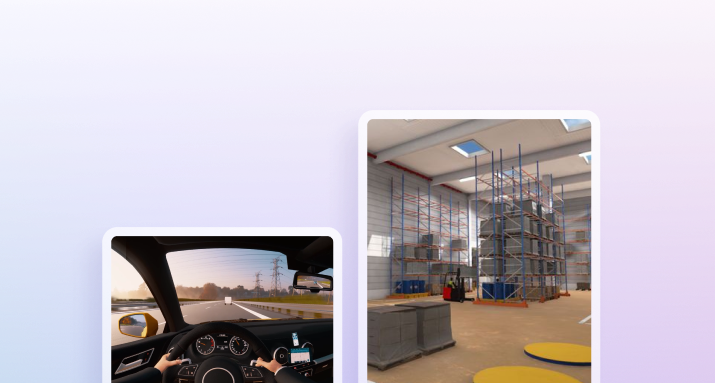
Off-the-shelf content
130+ licensable VR apps for a variety of enterprise use cases
VR marketplace
Custom content
Expert design and development services
used by the world’s biggest companies